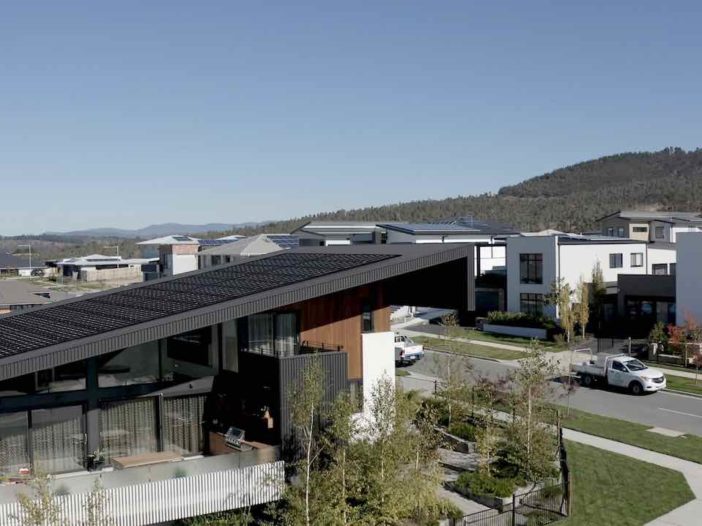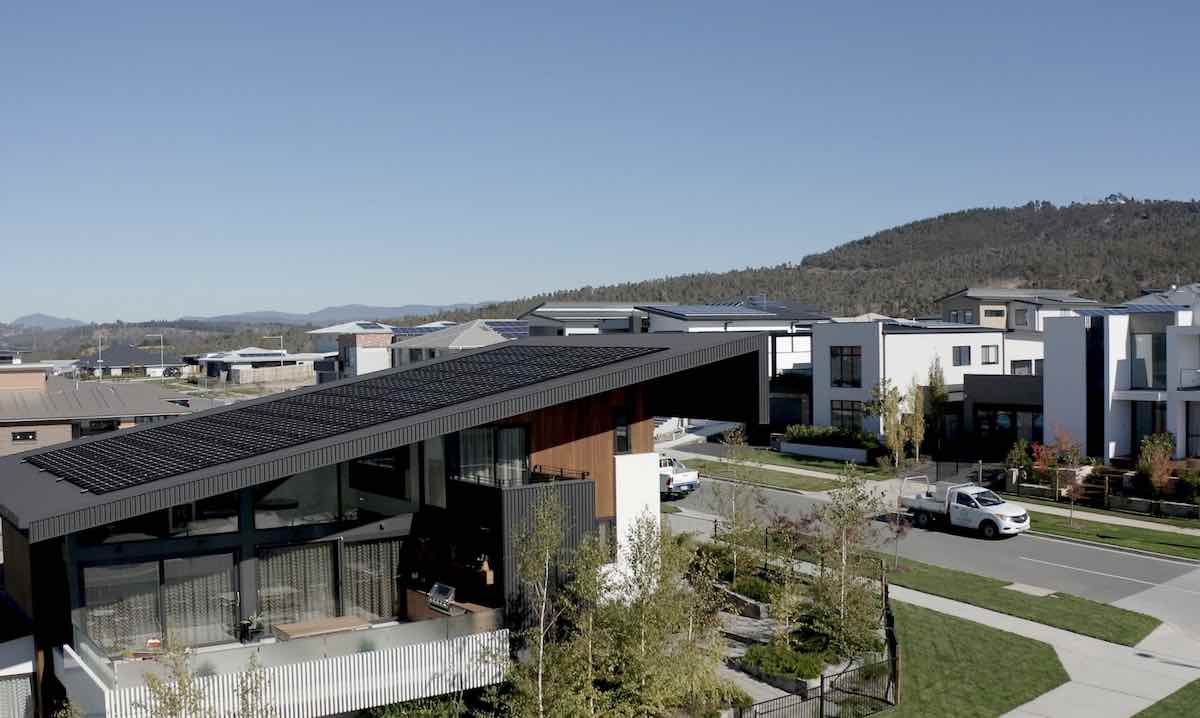
South Korea tech giant LG has made a shock exit from solar panel manufacturing, citing the impact of global market headwinds including the rising cost of raw materials and the “intensification of price competition.”
LG Electric said on Wednesday that the decision to wind up the company’s solar panel business had been approved by the board of directors on Tuesday night, and was expected to be realised as early as June 30 this year.
“The decision comes as uncertainties in the global solar panel business continue to increase due to a variety of contributing factors,” a statement said.
The solar exit, which appears to have come as a shock to the industry – at least in Australia, where its modules are highly rated – comes just weeks after LG launched its 2022 range of rooftop solar panels, the LG NeON H+ solar range, including the flagship 415W LG NeON H+.
The NeON H panels have been marketed as ideal for the Australian coastal environment, thanks to high temperature performance, and high wind load resistance. They also promise a 25-year product and performance warranty.
On that front, LG said on Wednesday that it would continue to stand behind its brand and maintain support for customers of existing LG solar panels “for a period of time after the business’s closure has been completed.”
The company also stressed that solar panel production would continue until the second quarter of the year, “to maintain adequate inventory for future service support.”
And while it’s leaving the solar panel manufacturing market behind, LG has committed to continue its focus on developing solar batteries for households and businesses, as part of a reorganisation of its Business Solutions Company, which housed the solar arm.
“Going forward, LG will leverage its renewable energy expertise to unlock value for its customers,” the statement said.
“The company will concentrate on growth sectors and plug into a new era of sustainability through rapidly evolving products and solutions including Energy Storage System (ESS), energy management solutions and other yet-to-be-announced advancements.”
The sudden exit of such a big and growing player in solar panel manufacturing drives home just how much strain the global market has been under over the past two years, as supply-chain bottle-necks and materials and component shortages pushed companies to the brink.
It also reignites concerns around product warranties and customer support once a player of this size exits the market – according to Warwick Johnston, managing director or solar analytics company SunWiz, LG had a roughly 7% share of the Australian rooftop market and was among the top five top-tier suppliers.
LG’s high quality, mostly Korea-made solar panels offered a point of difference in the Australian market which, like so many others, has been dominated by China-made panels.
“LG had a really strong dealer network, strongly supporting its operators in selling quality,” Johnston told One Step Off The Grid. “That was really good for the market. They really took their customers under their wing.”
Andy McCarthy, the CEO of RACV Solar, said his heart went out to the staff of LG’s solar business in Australia, many of whom had spent years working tirelessly to build a solid reputation, only to have it unwound with a “stroke of the pen” from head office.
For the broader industry, McCarthy said the sudden exit of LG would cause “collateral damage,” leaving consumers wondering which brands they could trust, if a big company like this couldn’t make it work.
“It’s never a good thing when a big company like LG suddenly disappears from the market,” McCarthy told One Step, recalling the impact on the industry in its more formative years when oil giant BP swept in, and then out, of solar panel manufacturing.
“But it’s such a big and growing market with such huge opportunity,” he added, “hopefully the [LG solar staff] will be soaked up by the industry and their collective experience will not be lost to it altogether.”
Industry veteran and head of business development at Solar Analytics, Nigel Morris, said the announcement from LG was “genuinely tragic news,” both for the industry and for consumers.
“Whenever a massive consumer brand exits it hurts trust and quite frankly makes the decision to sell premium harder,” Morris said.
“However, it’s not the first such exit – BP, Bosch and other huge brands have come and gone from the solar industry – and it undoubtedly won’t be the last.”
Morris said the news had also come as a surprise to one company insider he had spoken to, although they understood that “business is business,” and that LG’s solar division’s “very reasonable” profits had still paled in comparison to other divisions.
On top of this, despite shuffling production from Korea to China and back, recently, in an attempt to drive prices down, their premium quality standards meant they couldn’t get adequate scale, necessary to drive prices down a level that would stimulate the kind of profits the company apparently needed, the source said.
In Australia, and in other key global markets, LG had made a big show of establishing itself as a long-term, high quality leader in the solar industry and, on its Australian website, boasts of winning “Most Trusted Brand 2020” by Reader’s Digest.
In the FAQ section of LG Energy’s Australian website, there is a sub-section devoted to warning consumers against buying cheap solar systems, including advice for those wondering what to do when the solar company that installed their system has closed its business.
“To avoid such problems in the future, we suggest you should look at an established network of qualified installers, like the LG solar dealer network to install your system in the first place,” the website advises.
In March 2021, LG Electronics Australia announced that its general manager of the solar and energy business, Markus Lambert, was retiring after almost 10 years at the company and three years at the helm.
At that time, the company said an estimated 1.5 million LG solar panels had been installed on Australian homes and businesses over the past decade, and the LG partner network had grown to include more than 100 businesses, nationwide.

Sophie is editor of One Step Off The Grid and deputy editor of its sister site, Renew Economy. Sophie has been writing about clean energy for more than a decade.



